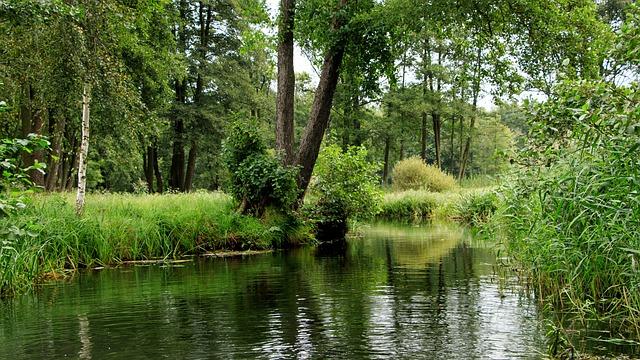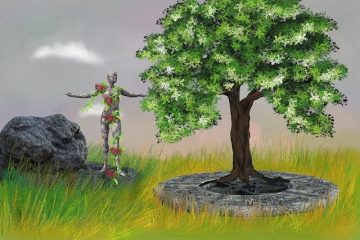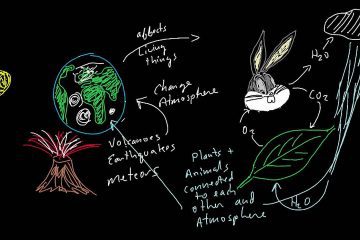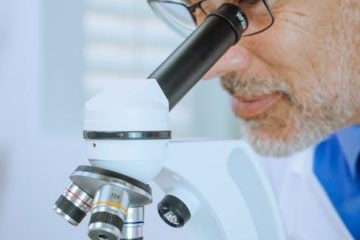Nestled within the ivy-covered walls of Harvard University lies a revolutionary concept that transcends traditional scientific paradigms – the Gaia hypothesis. This intriguing theory, first proposed by scientist James Lovelock, suggests that our planet Earth functions as a self-regulating, sentient organism. Join us on a journey as we delve into the depths of this captivating idea and explore its implications on how we perceive our interconnectedness with the natural world. Welcome to the realm where science meets spirituality, right here at the heart of academic excellence at Harvard.
Table of Contents
- Exploring the Intricacies of the Gaia Hypothesis at Harvard
- Unraveling the Relationship Between Biosphere and Climate
- Harvard’s Contributions to Understanding Gaia Theory
- Implementing Sustainable Practices in Light of Gaia Hypothesis
- Q&A
- To Wrap It Up
Exploring the Intricacies of the Gaia Hypothesis at Harvard
Embark on a captivating journey through the Gaia Hypothesis, a thought-provoking theory that delves into the interconnectedness of Earth’s systems. At Harvard, renowned scholars and scientists are unraveling the mysteries of this hypothesis, shedding light on the intricate web of relationships between living organisms and our planet. Through a lens of ecological harmony, researchers at Harvard are pushing boundaries and redefining our understanding of the delicate balance that sustains life on Earth.
Dive deep into the fascinating world of Gaia at Harvard, where innovative research and groundbreaking discoveries converge. Explore the symbiotic relationships between the atmosphere, oceans, and biosphere, as experts at one of the world’s leading academic institutions decode the language of nature. Join the conversation, challenge your perceptions, and broaden your horizons as you uncover the captivating wonders of the Gaia Hypothesis in the academic heart of Harvard University.

Unraveling the Relationship Between Biosphere and Climate
Explore the intricate dance between the biosphere and climate in a captivating journey that unveils the interconnectedness of nature’s wonders. Witness how the Gaia hypothesis, pioneered by visionary minds, sheds light on the delicate balance that sustains life on Earth. Discover:
- The hidden harmony of ecosystems
- The impact of climate change on biodiversity
- The role of feedback mechanisms in regulating the environment
Delve into the realms where science meets artistry, where the forces of nature converge to sculpt the landscapes we call home. Embark on a quest to comprehend the ripple effects of human activities on our planet’s delicate tapestry. Unearth:
- The synergies between flora and fauna
- The resilience of Earth’s natural cycles
- The power of collective efforts in nurturing our shared habitat

Harvard’s Contributions to Understanding Gaia Theory
In the realm of ecological studies, Harvard University has played a significant role in furthering our grasp of the Gaia Theory. Through rigorous research and academic exploration, Harvard scholars have delved deep into the interconnectedness of Earth’s systems and the living organisms that inhabit it.
Harvard’s contributions to understanding the Gaia Theory encompass a wide array of subjects, ranging from climate change to biodiversity. By combining cutting-edge methodologies with traditional ecological knowledge, Harvard has shed light on the intricate web of relationships that sustain life on our planet. Through collaborative efforts across disciplines, Harvard’s research initiatives continue to shape our understanding of the Earth as a dynamically evolving system.

Implementing Sustainable Practices in Light of Gaia Hypothesis
Incorporating the principles of the Gaia hypothesis into our daily operations can pave the way for a more sustainable future. By embracing the interconnectedness of all living organisms on Earth, we can strive to minimize our ecological footprint and foster harmony with nature. Implementing sustainable practices not only benefits the environment but also promotes a healthier and more balanced ecosystem for generations to come.
One way to align with the Gaia hypothesis is by reducing single-use plastics and embracing reusable alternatives. This simple shift can significantly reduce plastic waste, which is a major contributor to environmental pollution. Additionally, adopting organic and regenerative farming methods can help restore soil health and promote biodiversity, in line with the Gaia hypothesis’s emphasis on the interconnectedness of all life forms. By prioritizing renewable energy sources and promoting conservation efforts, we can work towards a more sustainable future that honors the delicate balance of our planet.
| Benefits of Implementing Sustainable Practices: | |
|---|---|
| Reduction in environmental impact | Promotion of biodiversity |
| Enhanced ecosystem resilience | Long-term sustainability |
Q&A
**Q&A: Explore the Fascinating Gaia Hypothesis at Harvard**
Q: What is the Gaia Hypothesis?
A: The Gaia Hypothesis proposes that the Earth functions as a self-regulating system, maintaining conditions conducive to life.
Q: How is the Gaia Hypothesis studied at Harvard?
A: Harvard researchers delve into various disciplines like ecology, geology, and atmospheric sciences to explore how Earth’s systems interact and evolve.
Q: What are the implications of the Gaia Hypothesis on environmental sustainability?
A: Understanding Earth as a self-regulating entity can lead to innovative solutions for addressing climate change and preserving biodiversity.
Q: How does the Gaia Hypothesis inspire scientific inquiry at Harvard?
A: The Gaia Hypothesis challenges scholars to rethink traditional views of the planet as a passive backdrop to life, fostering interdisciplinary collaborations.
Q: What are some notable findings related to the Gaia Hypothesis from Harvard research?
A: Harvard studies have shed light on how Earth’s ecosystems adapt to internal and external changes, highlighting the interconnectedness of all life forms.
Q: How can individuals engage with the concepts of the Gaia Hypothesis in their daily lives?
A: By fostering a sense of responsibility towards Earth’s ecosystems, individuals can make conscious choices to protect and nurture the planet for future generations.
To Wrap It Up
In conclusion, the Gaia Hypothesis has sparked intriguing discussions and reshaped our understanding of the Earth as a living organism. Through the lens of this holistic framework, Harvard researchers have delved into the intricate web of interactions that sustain life on our planet. As we continue to explore the interconnectedness of all living beings, let us embrace the profound implications of this paradigm-shifting theory and work towards a harmonious coexistence with Gaia, our planetary home. Let curiosity be our guide as we unravel the mysteries of nature and nurture a deeper connection with the world around us. Join us on this journey of discovery and rediscover the awe-inspiring beauty of Gaia, where science and wonder converge in a tapestry of life.



0 Comments